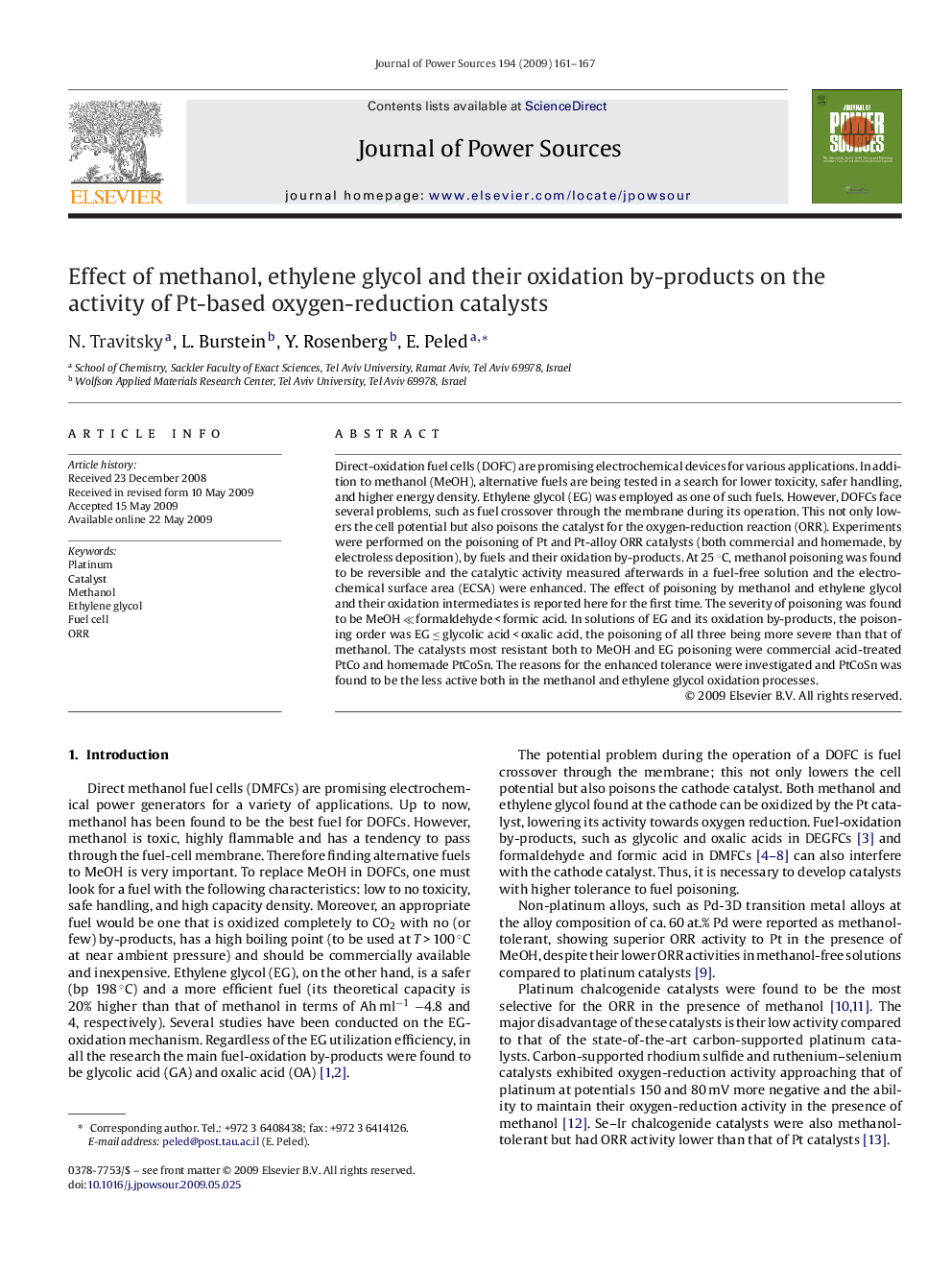| Article ID | Journal | Published Year | Pages | File Type |
|---|---|---|---|---|
| 1289829 | Journal of Power Sources | 2009 | 7 Pages |
Direct-oxidation fuel cells (DOFC) are promising electrochemical devices for various applications. In addition to methanol (MeOH), alternative fuels are being tested in a search for lower toxicity, safer handling, and higher energy density. Ethylene glycol (EG) was employed as one of such fuels. However, DOFCs face several problems, such as fuel crossover through the membrane during its operation. This not only lowers the cell potential but also poisons the catalyst for the oxygen-reduction reaction (ORR). Experiments were performed on the poisoning of Pt and Pt-alloy ORR catalysts (both commercial and homemade, by electroless deposition), by fuels and their oxidation by-products. At 25 °C, methanol poisoning was found to be reversible and the catalytic activity measured afterwards in a fuel-free solution and the electrochemical surface area (ECSA) were enhanced. The effect of poisoning by methanol and ethylene glycol and their oxidation intermediates is reported here for the first time. The severity of poisoning was found to be MeOH ≪ formaldehyde < formic acid. In solutions of EG and its oxidation by-products, the poisoning order was EG ≤ glycolic acid < oxalic acid, the poisoning of all three being more severe than that of methanol. The catalysts most resistant both to MeOH and EG poisoning were commercial acid-treated PtCo and homemade PtCoSn. The reasons for the enhanced tolerance were investigated and PtCoSn was found to be the less active both in the methanol and ethylene glycol oxidation processes.
